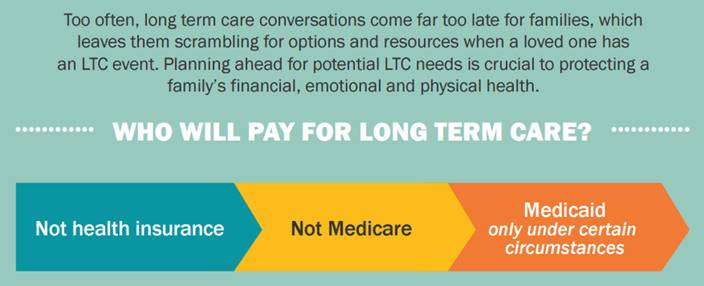
You need to read a book you like if you want reading to be a stress reliever. It doesn't necessarily have to be the most well-received book on the market, but it must grab your attention. Reading is great for stress relief because it relaxes the mind, which can help with managing stress levels. Reading the news can leave you angry, frustrated, and even angry. Fiction can give you the escape from daily life.
Avoid stress and exercise
An exercise stress test for stress readers is used depending on the likelihood of a patient developing a disease. Patients who are at low to intermediate risk of getting a disease shouldn't undergo this test. Patients with a history, such as anemia, of heart disease or other metabolic conditions, should not undergo the test. Patients with a family history that includes heart disease, anemia, or other metabolic disorders should discuss the option of an exercise test with their doctor.

The process of completing this test varies, but the basic concept is to measure the heart's capacity to handle different levels of stress. An exercise stress reader will track the patient's heartbeat and blood pressure while the patient pedals a treadmill, stationary bike, or bicycle. The patient will be asked to breathe through a mouthpiece while the device tracks the heart's activity. If the test is successful the doctor will get a general idea of the patient's heart condition.
Patient may have to withhold any medication that might cause an increase in heart rate or hypoglycemic agent, prior to undergoing an exercise stress exam. Because these drugs could affect the ECG during exercise, this is necessary. Patients who have an abnormal resting ECG may still undergo this test. However, their results might be different from what they would be if they were normal. This is why the patient's ECG should be normal before the test.
Nuclear stress test
Follow these instructions before you go under a nuclear stress testing. For instance, you should avoid caffeine and eat a light meal at least 2 hours before your appointment. Also, you should continue to take your regular medications. Any instructions that your doctor gives you should be followed. A nuclear stress test uses a radioactive tracer that records the heart's response. If you own an inhaler, you should bring it with you.
Numerous studies have demonstrated that the nuclear-stress test can be classified using multiple indications. The lowest being the most appropriate. If the patient is going through a preoperative evaluation and nuclear stress testing was done prior to the procedure, this would be indication 41. Further, this test is classified as appropriate for intermediate-risk surgical patients. This study evaluates whether a radiation stress test conducted in this setting could improve surgical safety.

All patients are different and therefore, not all nuclear-stress exams will be suitable. The results of nuclear stress tests are generally reliable. However, an abnormal test might require additional diagnosis and treatment. A cardiac catheterization can detect blockages in the arteries which supply the heart muscle. In severe cases, a bypass procedure may be necessary. Milder problems may need medication or careful waiting. Nuclear stress testing is used to diagnose, prevent, and treat medical conditions.
FAQ
What is a system of health in public health and what does it mean?
The Health System is a collection of all activities that are involved in providing health services to a population. It covers service delivery, financing and regulation as well as education, training, information systems, and research.
What do you think about the private sector's role?
Healthcare delivery can be facilitated by the private sector. It supplies equipment, among other things, that is used by hospitals.
It also covers some hospital staff. It makes sense for them also to participate in running it.
There are however limitations to what they offer.
Private providers cannot always compete with free services provided by governments.
And they shouldn’t try to run it all. This could indicate that the system isn't providing good value for your money.
What role do I play in public health?
You can help protect your own health and the health of others by taking part in prevention efforts. You can also help improve public health by reporting illnesses and injuries to health professionals so they can take action to prevent future cases.
Statistics
- The healthcare sector is one of the largest and most complex in the U.S. economy, accounting for 18% of gross domestic product (GDP) in 2020.1 (investopedia.com)
- Foreign investment in hospitals—up to 70% ownership- has been encouraged as an incentive for privatization. (en.wikipedia.org)
- The health share of the Gross domestic product (GDP) is expected to continue its upward trend, reaching 19.9 percent of GDP by 2025. (en.wikipedia.org)
- For the most part, that's true—over 80 percent of patients are over the age of 65. (rasmussen.edu)
- Healthcare Occupations PRINTER-FRIENDLY Employment in healthcare occupations is projected to grow 16 percent from 2020 to 2030, much faster than the average for all occupations, adding about 2.6 million new jobs. (bls.gov)
External Links
How To
What is the Healthcare Industry Value Chain (or Value Chain)?
The healthcare industry value chains include all the activities involved with providing healthcare services. This includes the operations of hospitals and clinics as a whole, and the supply chain that connects them to other providers. The result is a continuum which starts with diagnosis and ends in discharge.
The value chain consists of four major components.
-
Business Processes are the tasks carried out by employees throughout the entire health care delivery process. One example is that a doctor might do an examination and prescribe medication. The prescription will then be sent to a pharmacy for dispensing. Each step must always be done quickly and accurately.
-
Supply Chains - All the organizations involved in making sure that the right supplies reach the right people at the right time. A typical hospital has dozens of suppliers, including pharmacies, lab testing facilities, imaging centers, and even janitorial staff.
-
Networked Organizations: To coordinate these entities, it is necessary to have some means of communication between them. Hospitals are often composed of many departments. Each department will have its own set office and telephone number. Every department will have a central point where employees can go for updates to ensure everyone knows what's happening.
-
Information Technology Systems – IT is crucial in order to ensure that business processes run smoothly. It is essential to ensure that business processes run smoothly. Without IT, everything would be a mess. IT can also be used to integrate new technologies into a system. Doctors, for example, can connect to a secure internet connection to access electronic medical records.